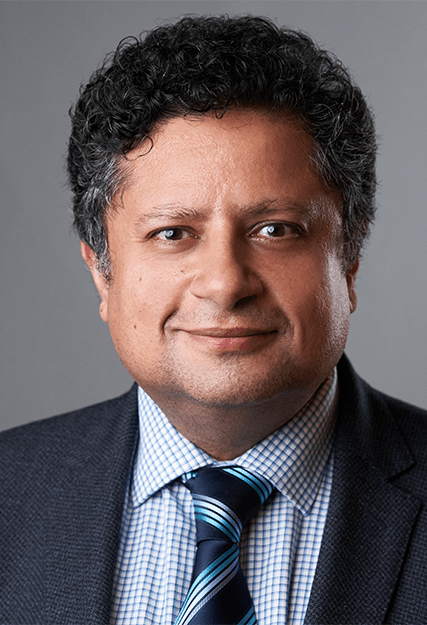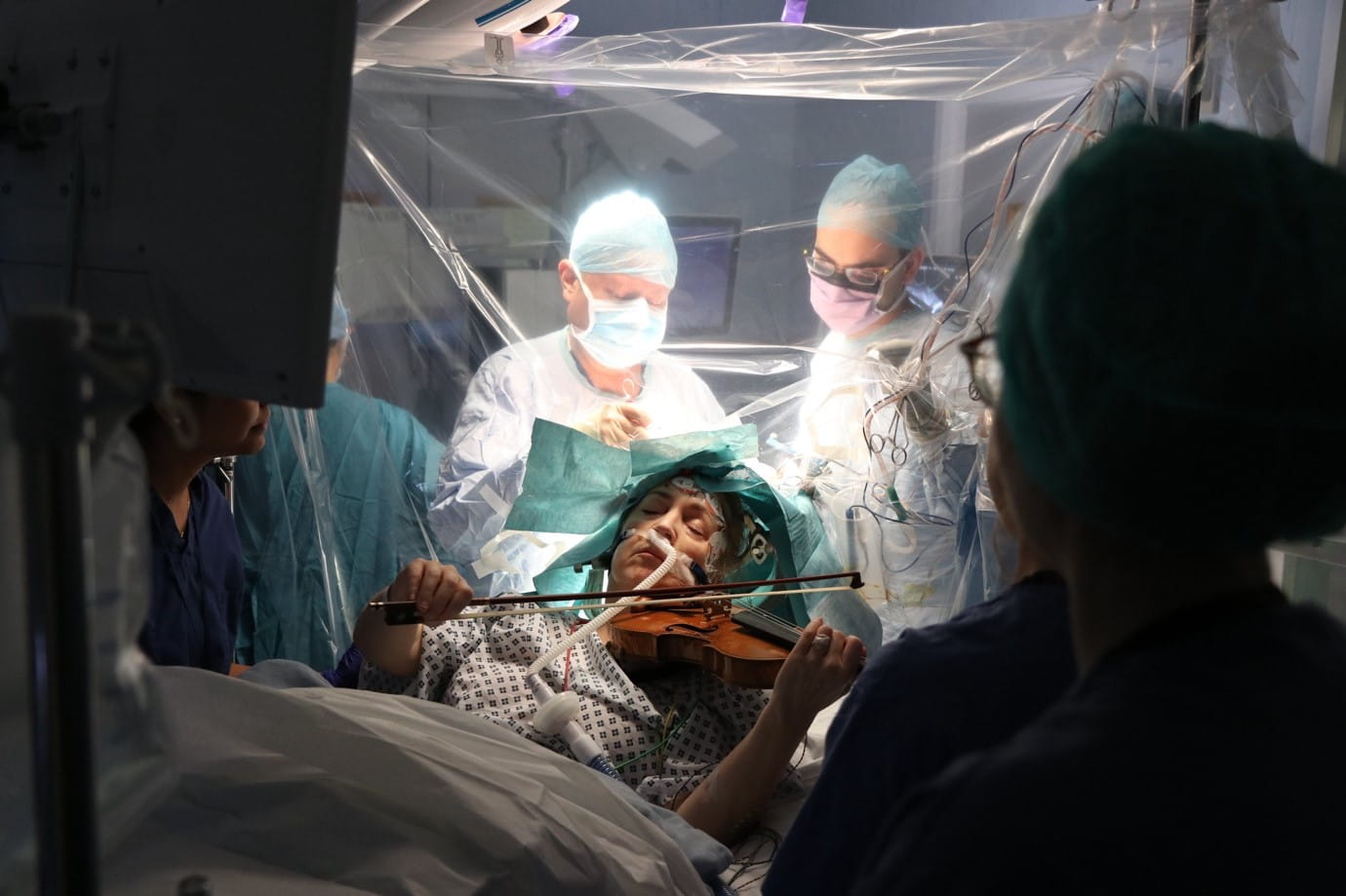Symphony of Success: Celebrating innovation in surgery for #NHS75

03 Jul 2023
Professor Keyoumars Ashkan
In this interview, we delve into an astonishing entry in Fujifilm UK’s photo competition series celebrating the NHS’s 75th birthday. ‘Patient playing the violin whilst undergoing brain surgery’ by Nial Anderson, shows RCS England member, Professor Keyoumars Ashkan, performing brain surgery while his conscious patient plays the violin. Read the full interview below to uncover the reasoning behind this captivating technique and the crucial role of teamwork in making the operation a success.
Can you describe the procedure featured in the photo competition series for the NHS's 75th birthday? What made it unique or particularly challenging?
The photo captures awake craniotomy and brain mapping surgery we performed to remove a brain tumour while Dagmar, our patient, played the violin. Brain mapping is nowadays increasingly used when brain tumours are located near those parts of the brain that control movement. The aim, then is to maximise the extent of tumour resection while preserving the motor function. We can do this under general anaesthetic with excellent results. In Dagmar's case, however, we needed to protect her motor function to the highest levels of dexterity, so any/slightest impairment was not acceptable. This is because Dagmar is a professional musician, and her life is defined by her music. In her own words, when she came to see me in the clinic before surgery - if she could not play her music, she would rather die of the tumour than have it operated on. Indeed, this is partly why she specifically sought me as her surgeon, even though she lived elsewhere in the UK. She knew my musical background (pianist with a music degree) and felt I would have the empathy and the understanding to respect her concerns and wishes. Playing professional violin is perhaps the most dexterous task known to humans. Therefore, we both decided the best way to ensure 100% preservation of that function was to have her awake and play the violin during the surgery. It all worked out well, we removed the tumour and she was playing her violin in her orchestra three weeks after the surgery and continues to do so three and a half years later.
How important was teamwork in successfully performing this procedure? Can you elaborate on the roles and collaboration involved?
Teamwork was absolutely crucial to this surgery. After all, the whole idea of doing this operation took form when Dagmar, as the patient, and myself, as the surgeon, put our heads together! Teamwork was also crucial throughout the surgery, with invaluable input from the neurophysiologists who helped with the brain mapping, the physiotherapists who assessed motor function during the surgery, the anaesthetists who monitored the patient throughout the surgery, the theatre staff who ensured the surgery went efficiently, my fellow and registrar who assisted me so wonderfully during the operation, and of course Dagmar who continued to play wonderful music for several hours while entrusting us to do her brain surgery.
Were there any specific moments during the procedure that stood out to you as examples of effective teamwork?
Every single second of every minute of every hour when we had the privilege of doing this operation. No single moment was any less significant in achieving the outcome, and no team member's contribution was any less crucial to the ultimate success, which is non-other than providing the best quality of life for our patients for as long as possible.

